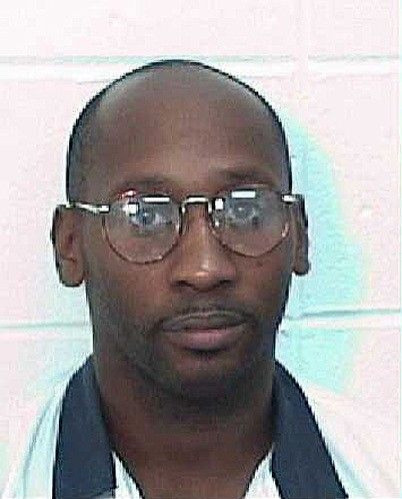Troy Davis Dies Wednesday, Death Row Inmate Denied Clemency [VIDEO]

Death row inmate Troy Davis' life will likely come to an end in a death chamber at a Georgia prison on Wednesday, as the state's Board of Pardons and Paroles on Tuesday denied a request for clemency.
The board was the only thing standing between Davis, 42, and execution. It convened on Monday to hear hours of testimonies from supporters and prosecutors.
Georgia Board of Pardons and Paroles spokesman Steve Hayes has said the panel decided to not grant the request after that.
Davis is expected to die by lethal injection after being convicted of shooting an off-duty officer Mark MacPhail in 1989. The officer was moonlighting as a security guard outside a Savannah bus station on Aug. 19 when he was shot and killed.
He was responding to the cries of a homeless man who was being pistol-whipped in a Burger King parking lot.
The victim's mother Anneliese MacPhail has said Davis' death would bring her peace.
I think I finally will have peace of mind, she told The Associated Press. When it is over I can close that book and I know Mark can rest in peace, too.
Now that the paroles board has denies the request for clemency, Davis seems to have exhausted all avenues to prevent his death. This is the fourth time in four years Davis' execution has been scheduled by Georgia officials, The AP said
For years his lawyers have argued they can prove Davis is innocent, and have managed to spare him from execution. After a series of appeals receiving special attention from the U.S. Supreme Court, the death row inmate couldn't convince the courts to grant him a new trial, The AP reported.
I am utterly shocked and disappointed at the failure of our justice system at all levels to correct a miscarriage of justice, Brian Kammer, one of Davis's attorneys, told the UK Guardian after the pardons board's decided.
Davis' 1991 conviction was based on the testimony of nine witnesses who testified seeing him pull the trigger. Davis was at the scene and has said he is innocent, but that another man, Sylvester Coles, attacked the homeless man and also shot MacPhail when he tried to intervene.
A murder weapon was never found and there was no DNA or other forensic evidence.
Moreover, seven of the nine witnesses have since come forward after the trial and recanted their testimony, saying that police coerced them into implicating Davis.
Others have also said Coles have confessed to killing the cop.
With such controversy surrounding the case, and the fact that there is soem doubt present, human rights group such as Amnesty International and the NAACP have called on the pardons board to reconsider their decision.
This is a huge setback for human rights in the USA, where a man who has been condemned under dubious evidence is to be executed by the state, said Salil Shetty, Amnesty International's Secretary General, in a statement. Even at this late stage, the board must reconsider its decision.
Shetty added that the decision by Georgia's Board of Pardons and Paroles to reject Troy Davis' appeal for clemency is at odds with its 2007 decision when they counseled against execution if there was 'doubt as to the guilt of the accused.'
Even if members of the Board were convinced that there was no doubt, many other people have not been so persuaded, Shetty said. Clearly, the U.S. capital justice system is capable of making mistakes. The persistent doubts that have plagued the Troy Davis case point to a fundamental flaw of the death penalty. It is irrevocable - and in the USA, the death penalty is also marked by arbitrariness, discrimination and error.
Learn more about the case in The AP video below:
© Copyright IBTimes 2025. All rights reserved.






















